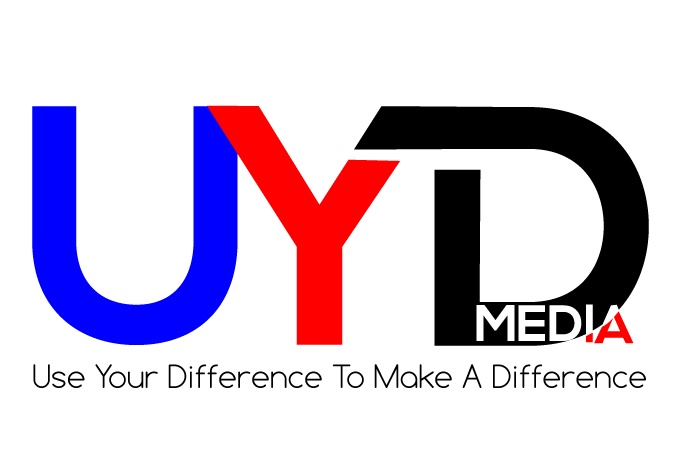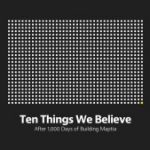I love global nomads. If you are one of them, you were likely that kid in school who won the spelling contest by nailing words like Mbabane, Yamoussoukro, Bishkek, Ulaanbaatar, Antananarivo or Ouagadougou.
And don´t get me started on what you can do during a hot game of Trivial Pursuit.
I am going to lump together a special group of individuals that may identify as Third Culture Kid (TCK), Cross Cultural Kid (CCK), military BRAT, or other equally (in)famous labels. You likely know from your own experience that simply because someone has lived abroad or is well-travelled does not mean that their worldview is expanded. In fact, the research supports this (1). In this article, when I use “global nomad,” I am referring to a special breed of globally-minded individuals who see things from multiple perspectives, allow their extensive experience across cultures to significantly shape their thinking, are eager to adapt their behavior based on the cultural context, and simply thrive in environments where diversity is the “norm.”
If you are globally-minded, this article is written just for you; however, it comes with a word of caution:
Your strengths may be neither evident nor immediately welcomed by everyone. By framing these mindfully, you will increase your success at work and reduce your own frustration.
I´m Sundae Schneider-Bean, intercultural specialist, and executive coach. I specialize in helping individuals live well, succeed across cultures and keep their sense of adventure. I am North Dakotan (USA) by birth, Swiss by marriage, and a global nomad based in Ouagadougou, Burkina Faso by choice. I know that, like many other nomads, you are at your best when you can freely bring your diverse experiences and perspectives into your work and relationships.
In this contribution to UYD, I will show you how you can make the most of your rich experience and avoid common pit-falls when working in less globally-minded environments. You will come away with the following:
- How to avoid one of your key your strengths from becoming a weakness
- How to reframe your intercultural competencies so they are relevant for any job
- Discover the one thing you can do to make sure you are successful, even in less globally-minded environments.
Ensure this strength doesn’t become a weakness
- Your expansive worldview has its obvious advantages:
- You are less likely to make assumptions (e.g. New Year´s Day is not January 1st for everyone)
- You may have an uncanny ability for empathy due to your diverse experiences and interest in understanding others´ perspectives
- You often consider multiple dimensions of a conflict (political, religious, philosophical, historical)
At risk of stating the obvious – just because you approach things this way, doesn´t mean others do. In fact, while you have been raised to consider multiple factors in almost any circumstance, it is important to keep in mind that others may be thinking, “The way we do things around here is good enough for everyone.”
The truth of the matter is that people vary greatly in regard to what is called intercultural sensitivity (2), based on their upbringing and experiences. In fact, most people have been raised in ways that their worldview has been reinforced not challenged. This a mechanism of culture.
So what can you do when you work with individuals who vary so significantly from you and your global mindset? What can you do when you are faced with someone (maybe even your boss!) who does little to recognize cultural differences, let alone appreciate their importance?
Emphasize similarities.
Bringing up differences from the start can be threatening. Once you have conveyed exactly how you see the situation similarly (perhaps searching for commonalities such as core values, or mutual desired outcome), bring up one important perspective that has not yet been considered. This framing serves as a “cushion” to what could have created an immediate defensive response.
Reframe your intercultural competencies at any job
As you embarked on global adventures, you likely picked up skills to work with others from diverse backgrounds along the way. Academics call this “intercultural competence”. This may have developed so “naturally” that you may find it hard to articulate exactly how your thinking and behavior was shaped. Houston – We have a problem.
Don´t be the fish desperately trying to describe water.
In so many professional contexts, your ability to communicate your strengths, value and skills is critical (i.e. in a job interview, during a salary negotiation, while under consideration for a promotion). Your intercultural competencies are undoubtedly strengths but this may not be immediately evident to a non-global nomad.Thus, it is essential that you get crystal clear on how these unique competencies add value.
Let me help you with that.
Due to the myriad of ways intercultural competence is defined, it can be either overwhelming or feel “too academic” for a natural conversation (3). There is a way around this.
Spell out your intercultural competencies in a language that showcases your strengths but doesn’t sound foreign to a workplace that is not crawling with global nomads.
Through the years, I have helped hundreds if not thousands of corporate professionals gain a clearer understanding of what it means to develop intercultural competencies – and it often begins with the basics. At the same time, it requires me to communicate complex abilities in terms that are easy to understand. You will have to do the same.
Drawing from an innovative approach from Intercultural Business Improvement, you can begin by focusing on four areas: intercultural sensitivity, intercultural communication, managing uncertainty, building commitment.
You can rely on this framework during any professional context that requires you to showcase your abilities (4). Here is an example of how you can put intercultural competencies into a language that is familiar and natural:
- I am usually quite curious about people from other cultures so I’ve noticed a lot through the years. I have become quite good at understanding someone´s perspective and what they need. (Intercultural Sensitivity)
- I have learned to be very mindful when I am communicating with other people. I have years of practice in many different situations and I’ve found it useful to adjust my style depending on the situation and what it requires (Intercultural communication)
- I spend time investing in relationships – which helps me not only build trust but find creative solutions. I also make sure that the people in my personal and professional network are from diverse groups because I thrive on new ideas and perspectives. (Building commitment)
- Working and living in another culture has really honed my ability to manage in times of uncertainty. Thanks to being exposed to a lot of cultural diversity, and honestly some stressful situations, I have had to maneuver among this complexity. This is a great way to learn from it. (Managing uncertainty)
These examples should serve as a starting point. What is important is that youget insanely clear on what you know and the skills you have developed thanks to your global experience. After you’ve taken this step, you need to make sure you frame these ideas in a language that is easy to understand.
Start by speaking about your skills in general (like the above) but then be ready to offer specific examples that support these statements. This is also a way for your counterpart to have a little “warm up time” to an example that may otherwise come across as exotic (i.e. That time when my family and I were facing the potential of a coup d’état…).
Take your sense of adventure along
Now you are able to communicate your skills and abilities in a way that is both non-threatening and easily understood. Life is good. Your boss has promoted you. Your colleagues are open to your unique perspectives. Hold on a second. You thrive in environments where diversity is the “norm.” How are you going to motivate yourself in an environment where the cultural diversity is not as rich as, say, the international school of Tanganyika?
This may be your greatest intercultural competency test yet.
Get clear on these questions:
- What will you do to remain neutral in a group of people whose mindset all differs significantly from yours?
- How will you stay motivated to build relationships with others who do not see the world in the same flexible way?
- In what ways will you adapt your communication to retain a sense of authenticity while adjusting to needs of others?
These are questions you need to get very clear on before you sign up for that job in Middle-sized City, USA or Grossdorf, Germany. You have all the skills you need at your fingertips. Don´t forget to use them!
Footnotes:
(1) Contact with another culture is not enough to create understanding. The conditions in which a person has contact with other cultures strongly influences the quality of the outcome, level of connection and understanding established. The wrong conditions (such as status inequality, unresolved historical conflict or spirit of competition) can actually result in protecting one´s own group identity. For more see Oetzel, J.G. (2005). Effective intercultural workgroup communication theory. In W. B. Gudykunst (Ed.), Theorizing about intercultural communication (pp. 351-371). Thousand Oaks, SAGE Publications.
(2) If you are curious about how people can vary based on their own intercultural journey, you can get an overview of Milton J. Bennett´s Developmental Model of Intercultural Sensitivity (DMIS) in this nine-minute video. This model, while not without its critiques, does add value in understanding the ways in which people can vary in their perspective of other cultures.
(3) For an excellent academic resource on how intercultural competence is conceptualized and applied in a variety of professional contexts, see The SAGE Handbook of Intercultural Competence, edited by Darla K. Deardorff.
(4) If you want help with better understanding your intercultural strengths and areas to improve based on this framework, don´t hesitate to contact me. I know of a quick and reliable way to find out!




